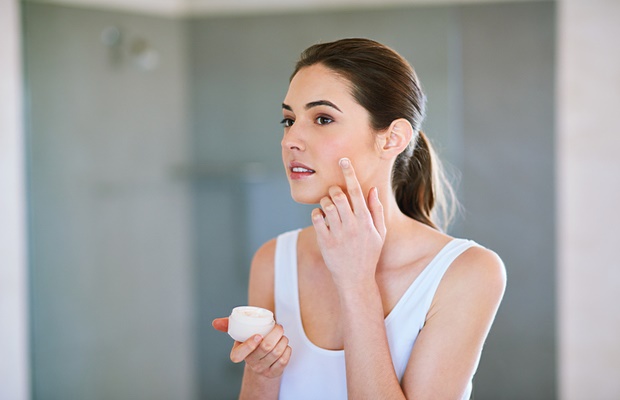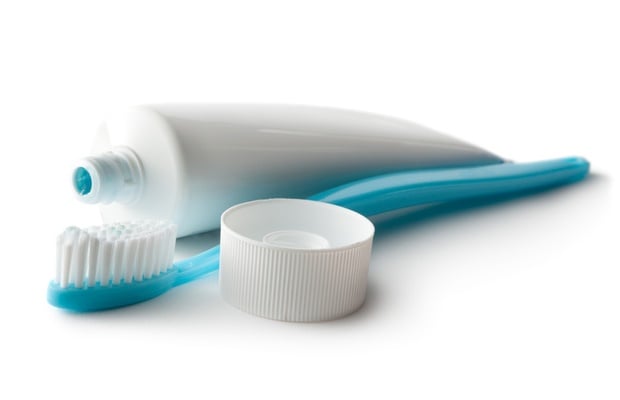When we watch a politician, actor or any other public figure fall from grace in the wake of a sex-centric scandal, it’s usually not long before someone throws the term “sex addiction” into the conversation.
But what separates sexual misconduct from actual addiction, and can you even really be addicted to sex in the first place?
According to the experts, that’s a complicated question.
For starters, sex addiction isn’t technically a real addiction – at least not according to the Diagnostic and Statistical Manual (DSM-5), which is the psychology diagnostic handbook.
Why? “According to research, sex ‘addiction’ doesn’t exist in brain chemistry the way that drugs and alcohol do,” says Dr Kat Van Kirk, a licensed marriage and sex therapist and author of The Married Sex Solution: A Realistic Guide to Saving Your Sex Life.
“However, it can create a behavioral compulsion that negatively affects a person’s life, much like gambling.”
Unlike the abuse of an unhealthy substance, sex is still considered a healthy part of life, she adds. For that reason, some therapists argue that “addiction” might not be the right word for sexual behaviour that gets out of control.
“I am not too keen on the sex-addiction diagnosis, since it is often moralistic and used to simplistically explain a variety of unconnected behaviours,” says Dr Michael Aaron, a licensed psychotherapist, sexologist and sex therapist in New York City.
“I like the term compulsive or out-of-control sexual behaviour much more than sex addiction.”
And compulsive behaviour, which is a characteristic of addiction, can still be seriously concerning and problematic.
“If someone has very negative consequences due to their sexual behaviour, such as job loss, health risks and legal ramifications, then more often than not that individual is struggling with compulsive sexual behaviour,” says Dr Aaron.
In other words, if your sex drive is spilling over into other aspects of your life (say, you cancel plans with friends because you want to masturbate all the time) that’s an issue –”addiction” or not.
Here, five more crucial things you need to know to better understand this complex issue.
1. It doesn’t always mean you’re having physical sex
When people talk about sex “addictions”, the implication is that the addict has lots and lots of sex with one or more people. But that’s not necessarily the case.
“The most common issue that I see is porn addiction or other technology-based sexual interactions such as web cams, chatting, or texting,” says Brandy Engler, author of The Men on My Couch and The Women on My Couch, a clinical psychologist who does believe in sex addictions.
“These guys” – most of these behaviours happen in men, according to the experts – “may do this while their wife or partner is in the house in another room, asleep or even at work.”
In fact, some people dealing with sex addictive behaviours aren’t actually having much sex at all, explains Dr Aaron.
“If your partner is not interested in intimacy anymore, there may be deeper relational issues at play, and he may be using porn as an escape,” he says. “That usually gets placed into the sex addiction silo.”
Read more: The truth about sex addiction
2. It’s not about bragging rights
Sex addictions have a tendency to be glamourised – who wouldn’t want to live like a rockstar and have Os all the time? But the reality is, “sex addicts often feel guilt and shame,” says Engler. “They are the opposite of proud womanisers.”
If your partner is compulsive about sex, chances are the behavior is actually about something deeper.
“[Sex addicts] often struggle with deeper psychological issues, and the ‘sex addiction’ label is just addressing symptoms,” says Dr Aaron. In fact, most “addicts” are co-diagnosed with other mental health issues like depression or bi-polar disorder, adds Dr Van Kirk.
Read more: 5 signs your relationship is dysfunctional
3. Spotting a sex addiction can be challenging
Along with the controversy around what to call a sex compulsion, shame makes sex addictions hard to catch – even in your own relationship.
“It can go unnoticed by a partner. Usually that is driven by some form of denial [on the part of the ‘addict’] which can be related to self-esteem issues, not wanting to hurt others, or not wanting to incur the judgement of others,” explains Dr Van Kirk.
That said, there are some signs that point to sex addiction.
“The subtle signs could be that the sex with the addicted partner feels disconnected,” says Engler. If your partner has trouble finishing or even starts avoiding sex with you – yes, seriously – those can also be early warning signs, she says.
“Sex addicts are not indiscriminately looking to have sex of any kind or with anyone. They are particular. For example, if a guy is into porn, he is looking for a personal experience without other people involved. If he is someone who acts out only with strangers, he may want to act out a very particular scenario, either a fetish or a trauma that he doesn’t want to involve his partner in.”
From there, just like official addictions, the signs start to get bigger, says Dr Aaron. Think STDs and even job and money trouble.
“I’ve seen people with a sex addiction blow hundreds of thousands of dollars on this,” says Engler.
But most of the time the way a sex addiction is uncovered is through infidelity – either a physical affair or evidence of online behaviours.
“If someone consistently has time unaccounted for, which they cannot explain, they may be more likely to be engaging in infidelity, which is often the pretense for sex-addiction treatment,” explains Dr Aaron.
Read more: These are the 4 most serious relationship red flags
4. Treating it is tricky
“Unfortunately, there is no approved practice for the treatment of ‘sex addiction’ as it is not a diagnosable mental disorder,” says Dr Van Kirk. “What unofficial treatments there are” – think rehab centres and programs – “came out of the Alcoholics Anonymous model, where full cessation of all behaviours are required. This has not been shown as an effective treatment,” she adds.
That’s why Dr Aaron advocates for a more mindful approach.
“I employ mindfulness exercises to become more aware of feelings and reduce anxiety, along with psychosexual education to help them understand their sexuality and align it more with their core values and desires. Instead of abstinence only, which is often counterproductive and shaming, I look to help my clients find alternative expressions for their sexuality which feel more safe and intentional,” he says.
Read more: “I cheated on my husband – and this is whyIdid it”
5. So what do you do if you think your partner might have a sex problem?
“If you approach the subject, it’s best to do so with curiosity and compassion instead of anger or shaming,” says Engler.
Given the fact that infidelity is so often involved with cases of sex addiction, that can be hard.
Instead of pushing your partner into a corner, remember “it is about his brain and his emotional regulation and he will need lots of help to recover,” she says.
This article was originally featured on www.womenshealthsa.co.za
Image credit: iStock
NEXT ON HEALTH24X














